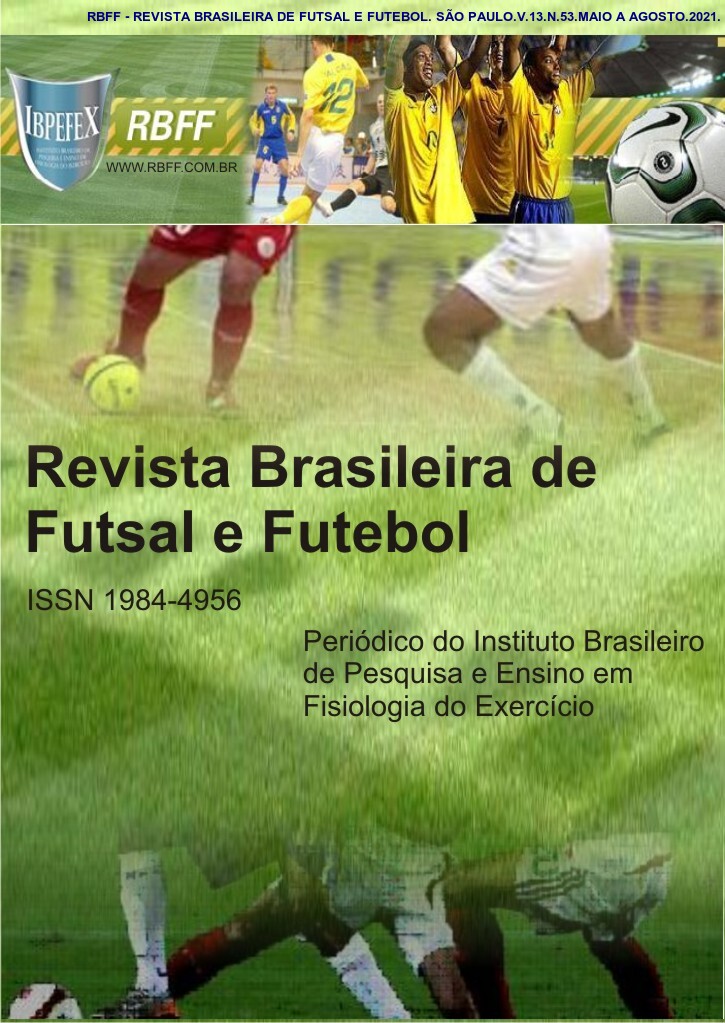Machine learning approaches to predict the match result: Brazilian futsal league case
Keywords:
Supervised Machine Learning, Prediction Models, FutsalAbstract
The use of machine learning approaches in sports has been grown in the last decade. Sports analytics, outcome match results, and possible player’s injury are examples of machine learning applications. Accordingly, this work aims to use machine learning techniques to build models to predict FutSal National League (LNF) results (win/loss/draw) based on data collected in the first half of a match. To accomplish that, we extract the data from the LNF website, and, based on the data, we propose six new features using the concept of team strength. The data correspond to the 2016 to 2019 seasons. The models are built usimg machine learning approaches, and they are validated through an accuracy metric. We build ten models, and the predictions are organized as follows: the individual performance of each model and a voting approach (committee) based on the majority of the predicted results. The results show that the individual models get better performance when predicting a single result (e.g., home win) with 95% accuracy. On the other hand, the committee gets a better performance regarding the overall results. The win, loss, and draw results reach almost 79% accuracy.
References
-Anderson, C.; Sally, D.The numbers game: Why everything you know about football is wrong. Penguin UK. 2013.
-Baboota, R.; Kaur, H. Predictive analysis and modelling football results using machine learning approach for English Premier League. International Journal of Forecasting. Vol. 35. Núm. 2. 2019. p.741-755.
-Bunker, R.P.; Thabtah, F. A machine learning framework for sport result prediction. Applied computing and informatics. Vol. 15. Núm. 1. 2019. p. 27-33.
-Constantinou, A.; Fenton, N. Towards smart-data: Improving predictive accuracy in long-term football team performance. Knowledge-Based Systems. Vol. 124. 2017. p 93-104.
-Duarte, D.; Ståhl, N. Machine learning: a concise overview. In: DATA Science in Practice. Springer. 2019. p. 27-58.
-Frencken, W. G. P.; Lemmink, K. A. P. M. Team kinematics of small-sided soccer games. In: Reilly, T.; Korkusuz, F. editors. Science and Football VI. New York. Routledge. 2009. p. 161-166.
-Fried, G.; Mumcu, C.; editors. Sport analytics: A data-driven approach to sport business and management. Taylor & Francis. 2016.
-Flôres, F. S.; Santos, D. L.; Carlson, G. R.; Gelain, E. Z. What Can Coaches Do? The Relationship Between Substitution and Results of Professional Football Matches. Revista Brasileira de Futsal e Futebol. São Paulo. Vol. 11. Núm. 43. 2019. p. 215-222.
-Horvat, T.; Job, J. The use of machine learning in sport outcome prediction: A review. Wiley Interdisciplinary Reviews. Vol. 10. Núm. 5. 2020. p.e1380.
-Imai, T.; Uchiyama, A.; Magome, T.; Higashino, T. Play recognition using soccer tracking data based on machine learning. InInternational Conference on Network-Based Information Systems. Springer. Cham. 2018. p. 875-884.
-Pedregosa, F.; Varoquaux, G.; Gramfort, A.; Michel, V.; Thirion, B.; Grisel, O.; Blondel, M.; Prettenhofer, P.; Weiss, R.; Dubourg, V.; Vanderplas, J. Scikit-learn: Machine learning in Python. The Journal of machine Learning research. Vol. 12. 2011. p. 2825-2830.
-Stübinger, J.; Mangold, B.; Knoll, J. Machine learning in football betting: Prediction of match results based on player characteristics. Applied Sciences. Vol. 10. Núm. 1. 2020. p.46.
-Tsunoda, T.; Komori, Y.; Matsugu, M.; Harada, T. Football action recognition using hierar-chical lstm. In: Proceedings of IEEE Conference on Computer Vision and Pattern Recognition Work shops (CVPRW). 2017. p. 155-163.
-Van Haaren, J.; Van den Broeck, G. Relational learning for football-related predictions. In Latest advances in inductive logic programming. 2015. p. 237-244.
Downloads
Published
How to Cite
Issue
Section
License
Authors who publish in this journal agree to the following terms:
- Authors retain the copyright and grant the journal the right of first publication, with work simultaneously licensed under the Creative Commons Attribution License BY-NC which allows the sharing of the work with acknowledgment of the authorship of the work and initial publication in this journal.
- Authors are authorized to enter into additional contracts separately for non-exclusive distribution of the version of the work published in this journal (eg, publishing in institutional repository or book chapter), with acknowledgment of authorship and initial publication in this journal.
- Authors are allowed and encouraged to post and distribute their work online (eg, in institutional repositories or on their personal page) at any point before or during the editorial process, as this can bring about productive change as well as increase impact and impact. citation of published work (See The Effect of Free Access).


